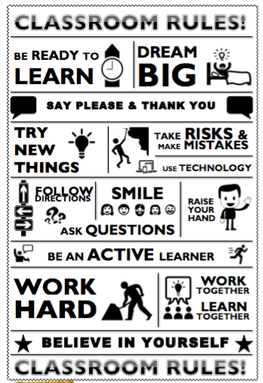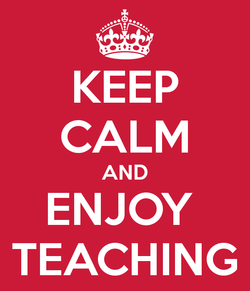| You’ve completed your minimum 24 weeks of teaching training, through either a university based postgraduate, undergraduate or school based programme, and are about to embark on the first week of your career as a fully-fledged teacher. From your first day back you will be responsible for educating, inspiring, managing behaviour, rewarding, and the wellbeing or potentially 30 students every hour for 20 hours per week. In order to ensure you flourish in your first week, and thrive and not just survive, I’ve put together some tips I was given as an NQT and others I’ve picked up along the way. |
As much as possible get an insight into the students in your class. If you have access to the schools data management system such as SIMS, access the SEND requirements of your students, previous academic progress and current attainment and social, emotional, medical and behavioural information. Know who the potential difficult students. With this said it’s vital that you begin a fresh and open view of each student, and have no preconception of how they will behave which can prime your influence of them. If you have an iPad, I would recommend purchasing iDoceo, an excellent app for managing seating plans, student data, calendars and an electronic planner.
Prepare a seating plan
Your seating plan must take into account the academic, behavioural, social, meotional and medical details of the students and maximise your classroom to make the most of the space you have. This may mean placing students into groups or separating them apart depending on their needs. A seating plan will assist in you in getting know the names of the students and their characters.
Read and understand the policies and procedures
The majority of institutions have the school policies on their website or can be accessed via their secure staff area. Ensure that you are aware of the key policies such as child protection, behaviour, reward, uniform policy the and timings of the school day. This you can read up on in the days running up to the big day back.
Plan ahead
Prepare all your lessons and lesson plans for the first week – this will reduce the amount of further preparation you need to do in your first week, with just tweaking of resources and activity plans and enable you to relax in the evenings. I would also recommend tat you have a medium and long term plan established so you are aware of where your day-today teaching fits into the big picture. Have your detailed lesson plans and lesson resources fully prepared for your first week. It is far better to sacrifice a couple of days over the holiday’s to elevate the pressure and workload on your during your first week.
| First impressions You want your students to feel confident in your ability, value your support and guidance and respect you. The way you conduct yourself, dress, sound and your mannerisms in your first lessons are essential. In 2005 Malcolm Gladwell wrote in his book Blink, about the theory of thin slicing. Thin-slicing’ refers to the ability of our unconscious to find patterns in situations and behaviuor based on very narrow slices of experience. Your students will form an opinion of you within the first 30 seconds, we all do as a human trait when meeting someone for the first time. |
Wellbeing
Drink during the day; drink plenty. You will be on your feet talking for most of the day, which is tiring work; make sure you stay hydrated, water helps to maintain normal body function, reduce the causes of headache and migraines, and will increase your energy levels. Teachers are renowned for drinking tea and coffee during the day, this is for good reason, the fluid will keep you actively functioning and the caffeine is a welcome boost. Eat well, during the day and when at home. Prepare evening meals in advance and freeze them, or get someone to cook for you, again this will reduce the amount of energy excursion you need to do during the evening. Make plans to see friends, play sports, go to the gym, or continue with your weekly socialising. Its important that you maintain a balanced work life balance and make a president of continuing to have a social life from the very start.
| Establish routines and make your expectations explicit From the very first lesson, introduce yourself and explain succinctly your class expectations and rules, it is vital that you establish a productive and challenging working environment from the very start. Meet and greet students at the door, have a positive approach, start each day with a clean sheet, and apply sanctions with care, consistency and fairness. I would advise against playing “getting to know you” games and activities, these can portray a sense of casualness. You will get to know the students with time; it does not need to happen in the first lesson, or few weeks for that matter. |
A document produced by Paul Dix titled Managing Behaviour Positively and Reducing Exclusion: A Checklist of Steps You Can Take, is a very good on e page document detailing techniques that should be adopted to promote
virtuous conduct.
It is often said that women can multitask and men cannot. Regardless of gender focus on, and complete one task at a time, this will ensure you make progress in accomplishing your workload.
Don’t be afraid to ask for help or guidance
Make sure that you ask, and seek the answers for all queries you have; its vital you are aware of your duties and how to go about them efficiently and effectively.
Familiarise yourself with the school
Know where the nearest toilets are, how to get to the staff room from your classroom, and where reprographics is or the nearest photocopier.
Get there early
Photocopy and organise all your material and resources for the day, and prepare for your lessons ahead and take time to relax before the day ensues. This will also give you an opportunity to speak to other colleagues and seek any last minute advice and insights into your classes or teaching as a whole.
Finally its important to remember, you are not alone. The vast majority of staff will feel trepidation towards their first day back from the most experienced staff downwards, particularly after a long relaxing summer holiday. Every year there are new staff starting from Headteachers to NQT's all of whom will take time to settle in, as with any new start, seek support from your colleagues and embrace the start to a rewarding and continually enlightening career.
Gladwell, Malcolm (2005). Blink: The power of thinking without thinking. New York: Little, Brown and Company.
Argyle, M., Alkema, F. & Gilmour, R. (1971). The communication of friendly and hostile attitudes by verbal and non-verbal signals. European Journal of Social Psychology, 1, 385-402
Apple, W., Streeter, L.A., Krauss, R.M. (1979). Effects of Pitch and Speech Rate on Personal Attributions. Journal of Personality and Social Psychology, 37, 715-727.
Ambady, N., & Rosenthal, R. (1993). Half a minute: Predicting teacher evaluations from thin slices of nonverbal behavior and physical attractiveness. Journal of Personality and Social Psychology, 64, 431-441.








 RSS Feed
RSS Feed
